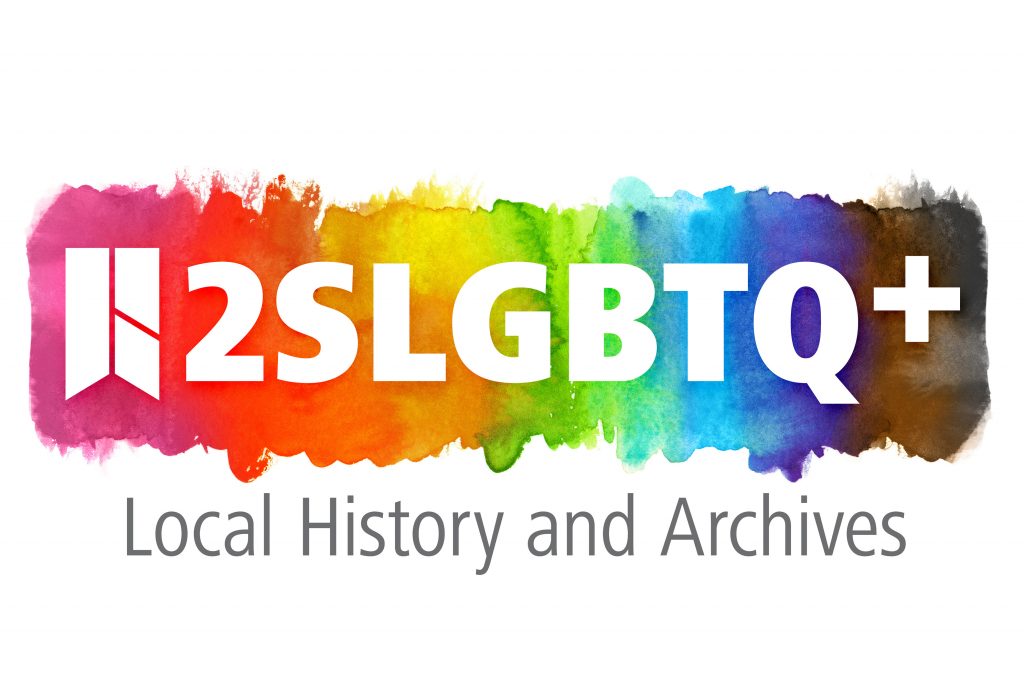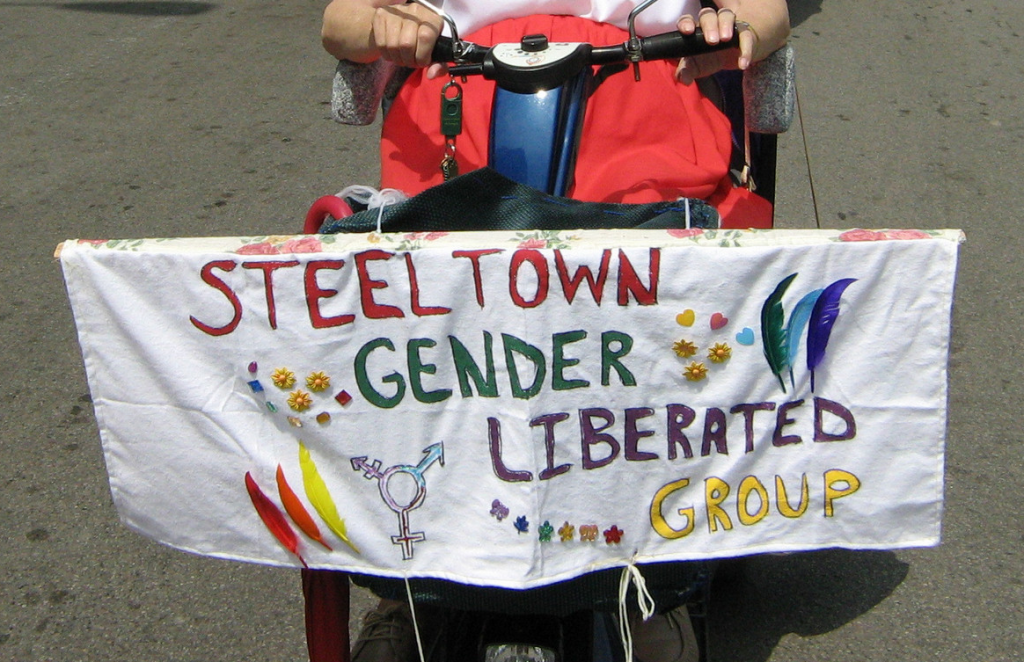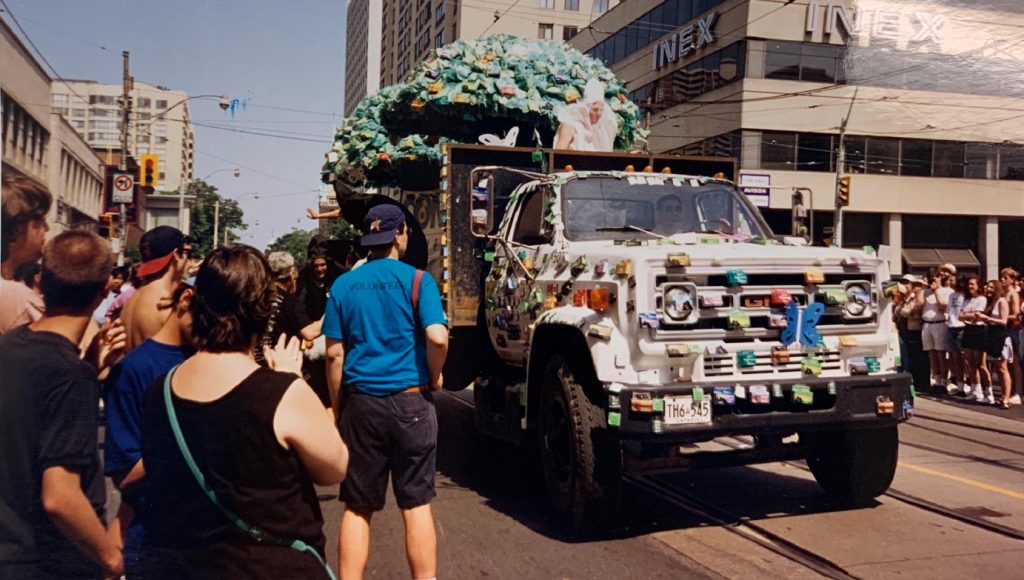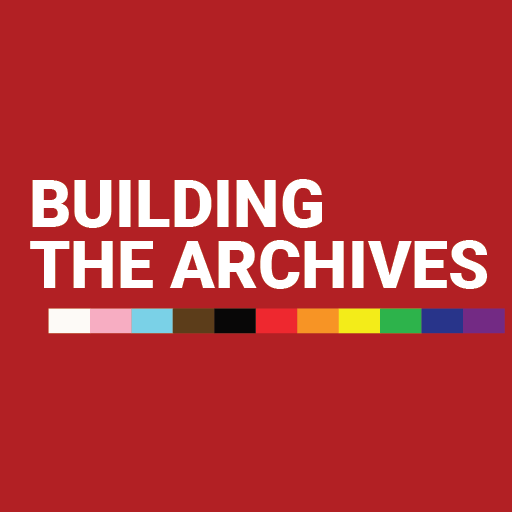In 2018 Hamilton Public Library accepted a founding donation for the 2SLGBTQ+ Community Archives from the estate of Michael Johnstone. Michael had, according to the library’s account, “captured more than 50 years of Hamilton’s 2SLGBTQ+ history – serving as a self-appointed archivist for a segment of the population that has long been marginalized.”
Michael’s papers include a range of materials: “news clippings, photos, meeting minutes, newsletters and more,” and they are currently being preserved and catalogued by HPL with plans to use them as the basis from which to build the Hamilton 2SLGBTQ+ Community Archives.


While we recognize the crucial importance of archiving the histories of 2SLGBTQ+ communities, we also recognize that gay and lesbian archiving has been a site of struggle, too. There has been much critique over the years for a tendency to archive histories and materials relevant to predominantly white gay (and to a lesser extent lesbian) lives, and for a subsequent lack of representation of more marginalized members of 2SLGBTQ+, including Black, Indigenous and people of colour (BIPOC) 2SLGBTQ+, trans and gender non-conforming/non-binary community members, members who identify as mad or disabled, or those more recently added to the longer version of the LGBTQ+ acronym including intersex, two-spirit, and asexual community members.
At this founding moment for the Hamilton 2SLGBTQ+ Community Archives, what can be learned from the history of gay and lesbian archiving, and from the critical engagements and counter-archives generated by those whose lives have not been centrally represented in 2SLGBTQ+ histories? We are developing community events intendted to spark critical conversations toward building and sustaining a Hamilton 2SLGBTQ+ Community Archives that is as diverse as possible, and ultimately an archive that can sustain and nurture its radical (grass)roots and support community counter-archives alongside its more traditional collection.

How can we best archive or document the diverse 2SLGBTQ+ histories in Hamilton?
Which people or organizations could be approached to donate historical records or materials to the archives or to record oral histories?
What creative formats might help share these stories beyond the archives?
Use Tell a Story to share your answers to these questions.
Contribute to the Archives
Use Tell a Story on this site to submit information or a request that we get in touch with you. You can also contact Local History and Archives at Hamilton Public Library directly for more information about contributing material.
Oral Histories Video Story
Fighting Discrimination: Early Lesbian and Gay Organizing in Hamilton
Our Commitments to Decolonization, Anti-Racism, and Anti-Oppression
We recognize that our work in Hamilton happens on the traditional territories of the Erie, Neutral, Huron-Wendat, Haudenosaunee and Mississaugas, on lands protected by the Dish With One Spoon Wampum agreement. We acknowledge that our shared work needs to deepen this recognition, committing us to decolonizing struggles. We are also committed to anti-racism and anti-oppression as core values for building the Hamilton 2SLGBTQ+ Community Archives, recognizing that mainstream gay and lesbian spaces are not always sufficiently attentive to the dynamics of racism, colonialism, imperialism, ableism, sexism, biphobia, and transphobia, among other forms of oppression.
Join the mailing list
Be the first to hear about other developments with Hamilton’s 2SLGBTQ+ Community Archive. Join our mailing list:

Department of English and Cultural Studies, McMaster University
